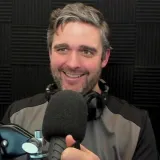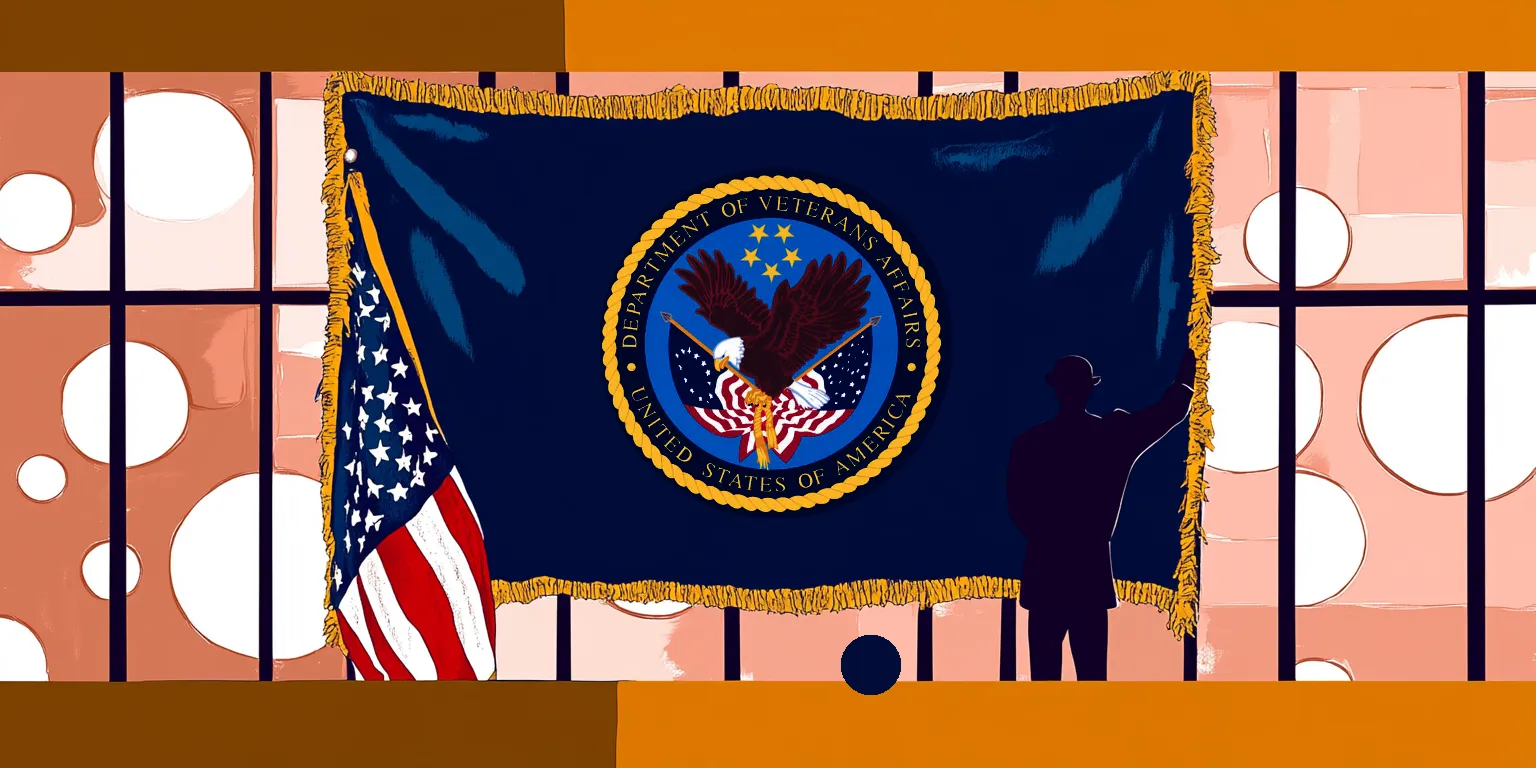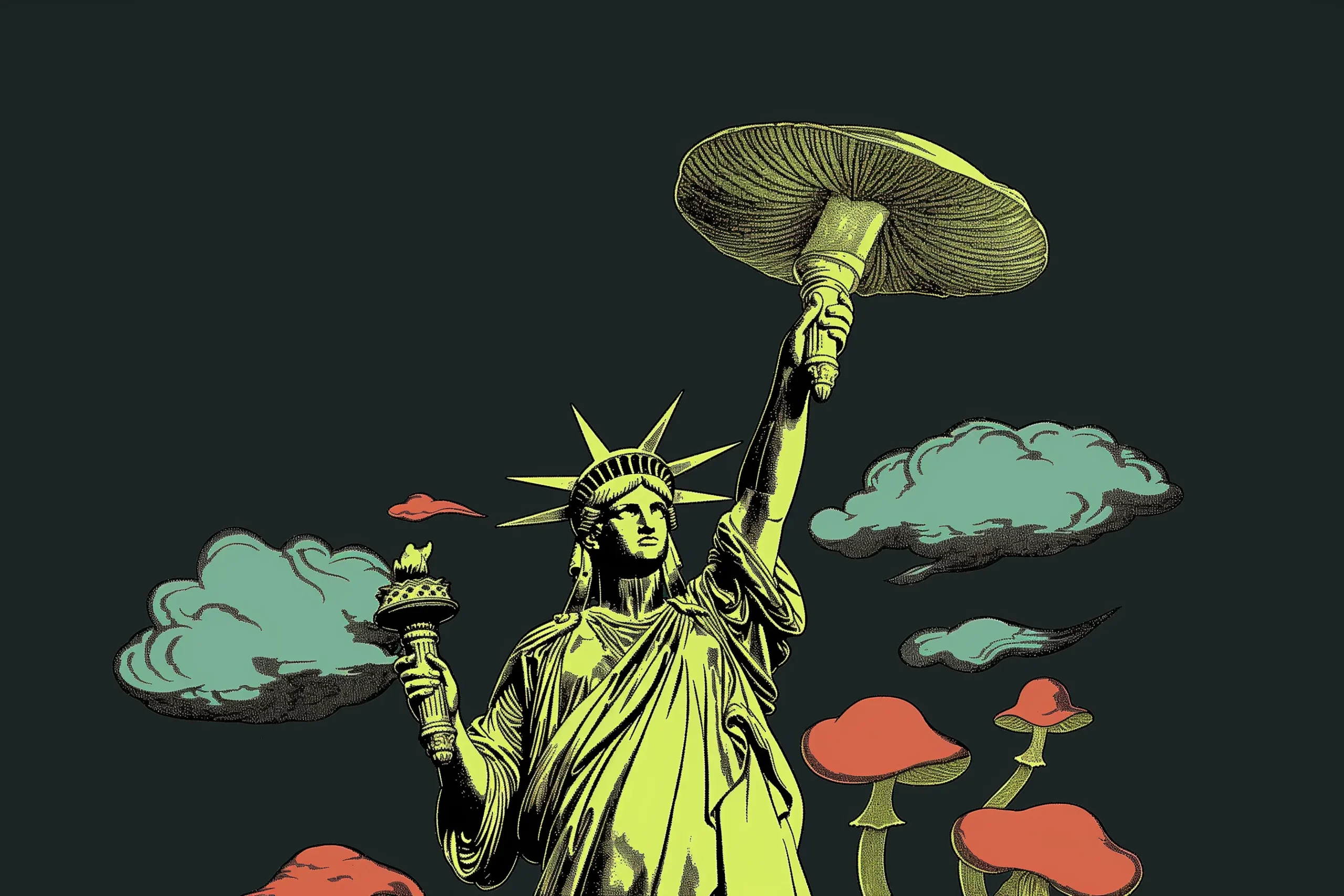Psychedelics have tread a long path from ancestral traditions to counterculture sacraments, and now, they’re at the frontier of mental health solutions. Amidst the ever-growing mental health crisis, the traditional psychiatric toolbox seems inadequate, necessitating a venture into the once-taboo, the realms of the mind opened by substances like LSD, Psilocybin, and Ketamine.
LSD and Psilocybin as Potential Treatments for OCD

In an article originally run by StudyFinds, the search for a new treatment for Obsessive Compulsive Disorder (OCD), a disorder characterized by distressing recurring thoughts and behaviors, has come to researchers at the Paris Brain Institute, which recently concluded a study utilizing LSD and psilocybin. Experts are exploring the therapeutic potentials of psychedelic substances like LSD and psilocybin. OCD, marked by intrusive obsessions and compulsions, significantly hampers the daily lives of sufferers, often leading to a relentless cycle of anxiety and ritualistic behaviors.
Traditional treatments often include cognitive-behavioral therapies and antidepressants. However, they often fall short, leaving about 30 to 40 percent of patients without relief. Psychedelics have resurfaced as a beacon of hope for several mental health conditions, albeit the legal restrictions on these substances pose a significant hurdle to conducting robust clinical studies.
The study looked into the self-reported experiences of 174 individuals with OCD symptoms who had previously used the psychedelic drugs LSD and psilocybin. By dissecting the correlations between the dose, the nature of the psychedelic experience, and the perceived alleviation of OCD symptoms, the researchers sought to unearth any potential long-term benefits. The findings, although preliminary, painted an optimistic picture, with participants recounting a decline in obsessive thoughts, lessened ritual engagement, and an overall eased anxiety. Remarkably, 30% of the participants reported persistence of these positive effects beyond three months post-psychedelic experience, hinting at the possibly enduring benefits of these substances.
Keep Up with Uncensored Psychedelic Trends
Join our newsletter at Psychedelics Uncensored.
We respect and protect your privacy. By subscribing your info will be subject to our privacy policy . Unsubscribe easily at any time
However, the study treads on a thin ice of subjectivity, as the self-reported data could be swayed by the participants’ pre-existing beliefs or expectations concerning the therapeutic prowess of psychedelics. The authors acknowledge that the euphoric or transcendental experiences often associated with psychedelics could potentially color the perceived therapeutic outcomes. This underpins the urgent need for more rigorous clinical investigations to dissect the therapeutic merit of psychedelics from the placebo-like effects possibly engendered by the profoundly altered states of consciousness that psychedelic medicine brings. Furthermore, delving into the biological underpinning of psychedelics’ long-term effects, especially their role in neuroplasticity and synaptic remodeling, is crucial to fully harness their potential as a novel treatment avenue for OCD.(1)
Governor Newsom Vetoes Psychedelics Legalization Bill, Aims for Therapeutic Access Legislation

As covered by Marijuana Moment, California Governor Gavin Newsom vetoed a bill proposing the legalization and regulated access to certain psychedelics, despite previously being an advocate for ending the war on drugs and legalizing cannabis. The veto comes amidst a growing movement for psychedelic reform, with two states having already enacted policy changes and two campaigns striving to bring the issue to California’s 2024 ballot. The vetoed bill, SB 58, introduced by Sen. Scott Wiener, was aimed at decriminalizing the possession and personal cultivation of specific entheogenic plants and fungi starting January 1, 2025. However, Newsom has expressed a desire for a new bill that establishes regulated therapeutic access to psychedelics with a potential framework for broader decriminalization once safety measures are thoroughly considered and implemented.
Newsom’s rejection has disappointed many, including military veterans and first responders who supported the reform, as it represented a chance to decriminalize the use of substances beneficial to many individuals. The bill had already been diluted from its original form, with certain psychedelics excluded and a workgroup proposed to study and provide legislative recommendations by 2025. In response to the veto, Wiener expressed regret over the missed opportunity but remained hopeful about introducing therapeutic-focused legislation next year, echoing Newsom’s emphasis on establishing therapeutic guidelines before decriminalization.
California officials have already cleared a campaign for a 2024 ballot initiative to legalize psilocybin, and another campaign aims to establish a $5 billion state agency for psychedelics research. Meanwhile, Newsom separately signed legislation allowing immediate prescription of certain currently illicit drugs like psilocybin and MDMA if federally rescheduled. The situation in California reflects a broader national trend, with Colorado and Oregon making strides in psychedelics regulation, showcasing the evolving stance on drug policy reform in the United States.(2)

Are You a Book Lover? We Reviewed Five Amazing and Trippy Psychedelic Books That You Need to Read.
→Psychedelic Sanctuaries: Exploring New Spiritual Horizons Amid Religious Disaffiliation

An article from The Conversation discusses the rise of psychedelic churches as a platform for the religiously unaffiliated, or “nones,” to explore spirituality and find meaning outside traditional religious frameworks. Through examples of various psychedelic churches like The Divine Assembly, Sanctuary Church, and others. The author, Morgan Shipley, highlights how these churches offer alternative spiritual expressions that emphasize direct experiences of the divine, often facilitated by psychedelics. While varying in practices and beliefs, these churches share a common goal of promoting emotional, psychological, and spiritual healing, challenging traditional religious narratives, and reflecting a broader shift toward individualized spirituality.
Psychedelic churches like The Divine Assembly in Utah and Sanctuary Church in Kentucky, provide spaces for individuals to explore spirituality and divine connection through psychedelic substances. They move away from the conventional religious focus on a monotheistic God, embracing a more inclusive, experiential, and often communal approach to spirituality. These churches often have educational initiatives and rituals that help individuals explore and integrate psychedelic experiences, fostering community and shared purpose among members.
Keep Up with Psychedelic Trends
Get uncensored psychedelic news, events, and updates. Join Psychedelics Uncensored!
We respect and protect your privacy. By subscribing your info will be subject to our privacy policy . Unsubscribe easily at any time
The article also touches on these churches’ cultural and legal positioning as they navigate the frameworks to establish themselves as faith-based organizations. They draw upon non-Western, indigenous, and New Age understandings of divinity, challenging traditional religious narratives. The emergence of Ayahuasca churches, for instance, underscores a growing recognition of the healing potential of psychedelics, both at an individual and community level. However, the appropriation and commodification of indigenous practices needs addressing. Through these psychedelic churches, members find new avenues to explore spirituality, emphasizing self-realization, and the intrinsic sacredness within each individual.(3)
California’s Psychedelic Frontier: The TREAT Act’s $5 Billion Pledge to Explore Mind-Altering Therapies

A story published by Marijuana Moment discusses a campaign in California aimed at qualifying a ballot measure for the state’s 2024 elections that proposes $5 billion in funding for creating a state agency for advancing psychedelic therapies’ research and development. This initiative is known as the TREAT California Act. While it does not intend to change the legal status of any substances, it aims to establish the Treatment, Research, Education, Access and Therapies (TREAT) Institute to propel scientific inquiry into psychedelics’ therapeutic potential. If passed, it would create a constitutional right in California to conduct research using various psychedelic substances, excluding peyote (due to sustainability concerns), like psilocybin, ibogaine, LSD, MDMA, ketamine, and cannabis. This move is driven by a perceived mental healthcare crisis where conventional therapies often fall short in relieving conditions like PTSD, depression, and suicidality, as stated by Jeannie Fontana, CEO of the TREAT California campaign.
To qualify for the 2024 ballot, the campaign must gather at least 874,641 valid signatures from registered voters. The initiative aims to create a funding agency to foster a paradigm shift in mental healthcare, with the ultimate goal of gaining FDA approval for these substances and making them accessible therapeutically. The proposed funding would support various facets, including research, clinical trials, training, and education related to psychedelic use for therapeutic purposes. The initiative would also facilitate the development of care programs in California for psilocybin and MDMA after their therapeutic approval by the FDA.
The measure also aims to explore the risks and benefits of psychedelic-assisted therapy for various disorders, like addiction, anxiety, depression, PTSD, chronic and acute pain, OCD, and anorexia. The financial analysis by California’s Legislative Analyst’s Office estimates a cost of $6.6 billion over 30 years. However, through intellectual property agreements with entities funded by the TREAT Institute, there’s potential for revenue generation from new scientific discoveries on psychedelics. However, the timeline and amount of revenue remain uncertain.
In a broader context, the article touches on the increasing interest and legislative movements regarding psychedelic substances both in California and across the U.S., for instance, the efforts by Decriminalize California to legalize psilocybin and legislative actions in Michigan urging federal entities to prioritize research into psychedelics for treating psychological trauma from military service. The TREAT California Act represents a part of the growing movement to explore and potentially integrate psychedelic substances into the therapeutic landscape to address the limitations of current mental health care approaches.(4)
Psychedelic medicine represents the real potential for healing and self-discovery, yet a deluge of questions about legality, ethics, and efficacy emerge. Amidst the narratives of psychedelic research, legality, and spiritual explorations, we find ourselves at the cusp of a psychedelic renaissance, a venture into the unknown demanding not just scientific rigor but a collective introspection and meaningful discourse of the rights and the responsibilities that come with unlocking the doors of perception.
Sources

1. Anderer, J. (2023, October 10). Is LSD the cure for OCD? Study reveals potential benefits of using psychedelics. Study Finds. https://studyfinds.org/lsd-ocd-psychedelics/
2. Jaeger, K. (2023, October 7). California Governor Newsom Vetoes Psychedelics Legalization, But Calls For New Bill On Therapeutic Access Next Year. Marijuana Moment. https://www.marijuanamoment.net/california-governor-newsom-vetoes-psychedelics-legalization-bill-despite-leading-on-marijuana-reform/#:~:text=The%20veto%20from%20Newsom%20comes
3. Shipley, M. (2023, October 10). How “nones” − the religiously unaffiliated − are finding meaning, purpose and spirituality in psychedelic churches. The Conversation. https://theconversation.com/how-nones-the-religiously-unaffiliated-are-finding-meaning-purpose-and-spirituality-in-psychedelic-churches-207461
4. Adlin, B. (2023, October 10). California Campaign To Put $5 Billion Towards Psychedelic Research Begins Gathering Signatures For Ballot Measure. Marijuana Moment. https://www.marijuanamoment.net/california-campaign-to-put-5-billion-towards-psychedelic-research-begins-gathering-signatures-for-ballot-measure/
This material is not intended as a replacement or substitute for any legal or medical advice. Always consult a medical professional about your health needs. Psychedelics are widely illegal in the United States, and readers should always be informed about local, state, and federal regulations regarding psychedelics or other drugs.

 David Connell
David Connell



 Ross Dillon
Ross Dillon 
